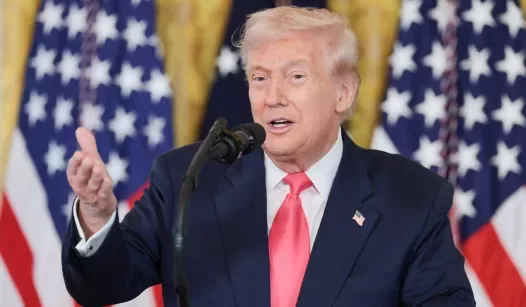The legal foundation for the tariffs imposed by the Trump administration has sparked considerable debate. While proponents of these tariffs argue that they are essential for protecting American industries and jobs, the legal justification for such sweeping measures raises significant questions. At the core of this discussion is the interpretation of Congress’s authority to regulate trade and the extent to which the executive branch can unilaterally impose tariffs.
The most compelling argument supporting Trump’s tariffs hinges on a controversial interpretation of the Trade Expansion Act of 1962, which grants the President the authority to impose tariffs in response to national security threats. However, this interpretation assumes an extreme scenario: that the United States is effectively in a state of war with every country that faces these tariffs. Such a broad application of the law raises concerns about the limits of presidential power and the potential for overreach.
Historically, the power to impose tariffs has been a shared responsibility between Congress and the President. The Constitution grants Congress the authority to regulate commerce with foreign nations, which includes the power to levy tariffs. Over the years, Congress has delegated some of this authority to the executive branch, allowing for a more flexible response to changing economic conditions. However, this delegation does not equate to an unlimited license for the President to act unilaterally.
Critics of the Trump tariffs argue that the administration’s interpretation of national security is overly expansive and lacks a solid factual basis. For instance, the tariffs imposed on steel and aluminum imports were justified on the grounds of protecting U.S. national security, but many industry experts contend that the actual threat posed by foreign steel and aluminum is minimal. This raises important questions about the criteria used to determine what constitutes a national security threat and whether the tariffs are truly necessary for protecting American interests.
Moreover, the imposition of tariffs can have unintended consequences that may ultimately harm the very industries they aim to protect. For example, tariffs can lead to increased costs for American manufacturers who rely on imported materials, which can, in turn, result in higher prices for consumers. Additionally, retaliatory tariffs from other countries can hurt American exporters, leading to a potential trade war that could have far-reaching effects on the economy.
As the legal and economic implications of the Trump tariffs continue to unfold, it is essential for lawmakers and the public to engage in a thoughtful discussion about the appropriate balance of power between Congress and the President when it comes to trade policy. The current landscape of U.S. trade relations is complex and fraught with challenges, and a careful examination of the legal frameworks governing tariffs is crucial for ensuring that American interests are effectively protected without overstepping constitutional boundaries.
In conclusion, while the Trump administration’s tariffs have been framed as a necessary response to perceived threats from foreign nations, the legal justifications for these measures are far from clear-cut. The assumption that the United States is in a state of war with its trading partners is a contentious one, and it underscores the need for a more nuanced approach to trade policy that respects the constitutional roles of both Congress and the President. As the debate continues, it will be important for all stakeholders to consider the long-term implications of these tariffs on the U.S. economy and its position in the global marketplace.
